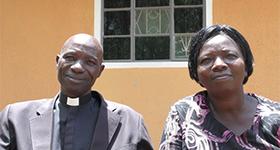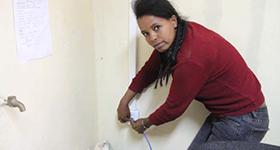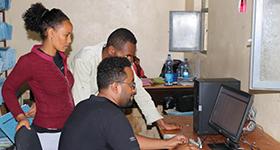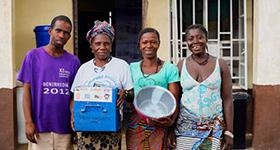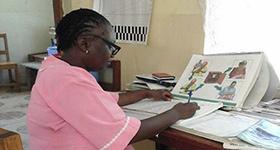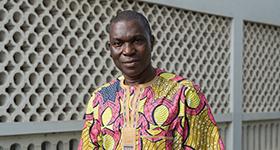APC grantee the Dominican Family Planning Association, Inc. (ADOPLAFAM) provides training and high-quality services in maternal and child health, family planning, reproductive, and sexual health for lower income groups in the Dominican Republic.
Peer Educators Luz Vilorio and Gregory Mercedes
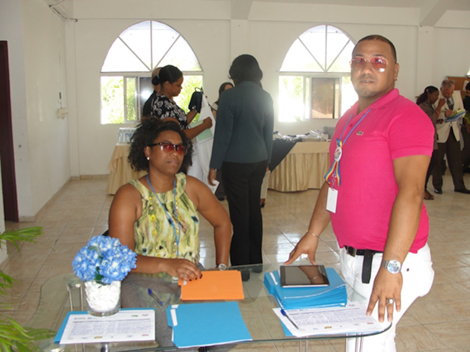
Gregory Mercedes is one of the few openly gay members of his rural community in El Seibo, Dominican Republic. He is a peer educator for ADOPLAFAM and work primarily with men who have sex with men. Luz Vilorio, also from El Siebo, works as a peer educator for female sex workers.
Community Health Worker Yris Moolenar
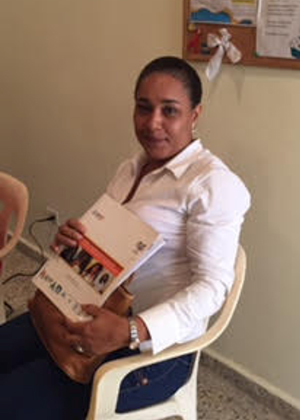
Yris Moolenar has been working as a community health worker for the last five years. She conducts home visits to people living with HIV in Hato Mayor, an inland province in eastern Dominican Republic. Among her many tasks during these visits are counting pills to ensure that her clients are taking their medicines, and helping them get to and from the clinic as needed. Although her job is exhausting, Yris says there is nothing else she would rather do than to help those who need her.
Community Health Worker-in-Training Ana Maria de Leon
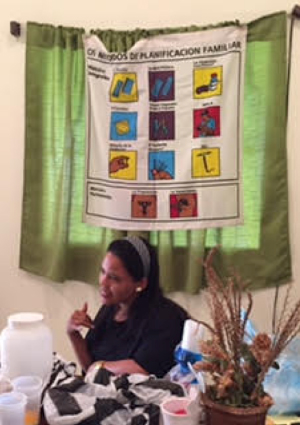
When Ana Maria de Leon began working with ADOPLAFAM's Hato Mayor Clinic as a receptionist, she fell in love with the children, young women, and families in the bateyes, the sugar cane plantations that ADOPLAFAM serves. She continues to be an administrative assistant, but is being trained to conduct HIV testing and counseling for people who come to the clinic. The part of her job that gives her the most satisfaction is the outreach and education work in the community, especially on bateyes. Ana gives everyone her whatsapp contact so they can reach her whenever they get the courage to get tested.
Community Health Worker Blas Zorilla
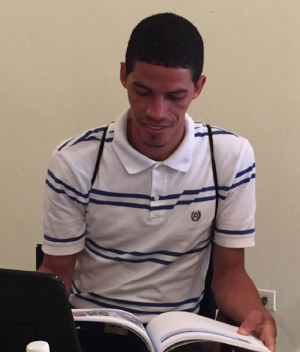
For the last few years, Blas Zorilla has worked with batey residents through ADOPLAFAM. Blas visits HIV-positive people to support their antiretroviral therapy, and conducts HIV and AIDS prevention outreach in some of the Dominican Republic's poorest plantation communities. Recently, he attended a training to counsel HIV-positive people to disclose their HIV status. Blas says one of the biggest barriers to appropriate care for HIV-positive people is stigma. "An HIV-positive patient needs [a] good social support system, and if they have not disclosed [their] status to their own family, there is limited support. I try to bridge that gap."
Health Promoter Maria Berroa and Regional Coordinator for Health Workers Jose Perez
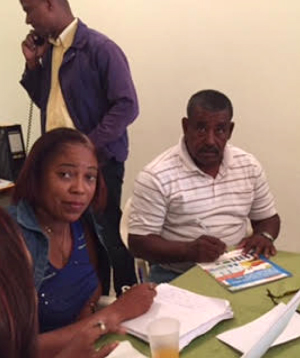
Maria Berroa has been working as a health promoter with female sex workers for the last 15 years in the port town of San Pedro de Marcois. San Pedro de Marcois is the Dominican Republic's baseball capital and attracts many young men who come to the city for short stays for training and other temporary work. As a result, sex work is prominent. Maria's goal is to convince each sex worker who is interested in an HIV test to get tested, and to accompany the sex worker to the test.
Before becoming a health promoter, Maria was a sex worker. Her familiarity with the job and lifestyle helps her establish rapport and eventually trust with the sex workers. She gives everyone her cell phone number so they can reach her at any time. Maria also develops relationships with the managers of establishments where sex workers congregate to ensure she has the freedom to converse with the sex workers. She laughingly says that she is known as the 'condom lady.'
Jose Perez is the regional coordinator for all of ADOPLAFAM's health workers in the eastern part of the DR. He has bi-weekly sessions with each health worker to help them prioritize areas to conduct outreach, visits to testing sits, and other priorities. He also distributes free condoms to the health workers.

